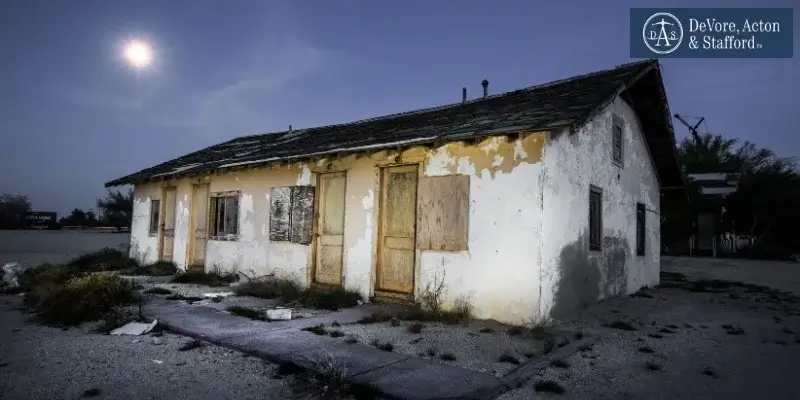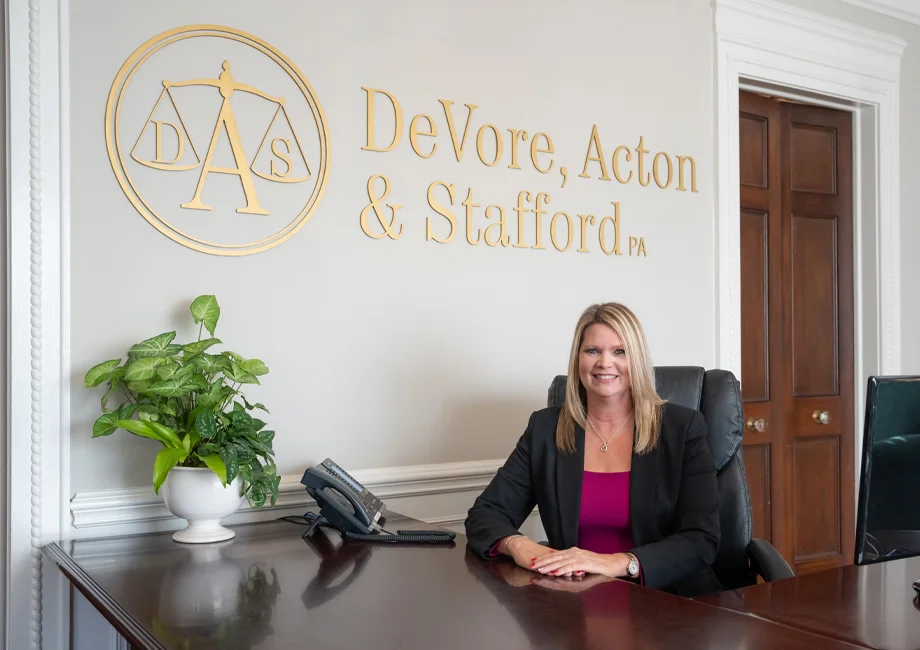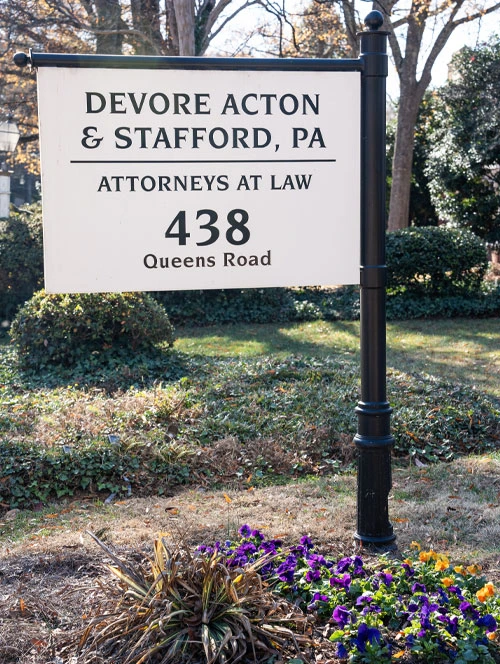Charlotte Inverse Condemnation Attorney
Charlotte Inverse Condemnation Lawyer
A Charlotte inverse condemnation attorney is a necessary resource if you are a property owner who has had their property value diminished or damaged because of a government entity. This could be due to a government project being conducted or government use of the property. If you are in this situation, you may be entitled to compensation, and you should speak with an attorney immediately.

What is Inverse Condemnation?
Inverse condemnation is an action taken when a government entity damages or diminishes the value of a property owner’s private property. Unlike typical condemnation cases, inverse condemnation occurs when the government entity does not file an action or offer any compensation. The property owner has the right to pursue legal action against the entity for fair compensation for the loss of value.
There are usually two ways a property can be taken. There could be physical taking, which means the entity encroaches upon or occupies the property for its own use. There could also be regulatory taking, which means there are ordinances, laws, or conditions set in place that limit or diminish the property’s value.
Process of Filing a Claim in Charlotte, NC
Filing an inverse condemnation claim is initiated by the property owner in Charlotte, NC. This process can become stressful and time-consuming. The help of an attorney is often required. The process usually requires the following steps:
- Filing a complaint against the government entity with the superior court of the county where the property is located.
- The government entity will have a number of days in which they must respond. In the response, they may agree that they took or damaged your property and deposit an amount of money they believe you’re entitled to. If you disagree with the amount they deposited, you could ask a lawyer to help you argue against it. Or they could claim that you aren’t owed any compensation at all, and you will have to proceed with a legal claim against them.
- If a settlement is not reached between the parties, a hearing will be scheduled before a judge.
- If the judge determines that the entity took or damaged the property and a settlement is still not reached, a trial could commence to determine appropriate compensation.
Examples of Inverse Condemnation
Some common situations that could prompt inverse condemnation include:
- The government adopts land use restrictions that preclude all economic use of the property.
- The government has a project that didn’t appropriately account for storm drainage, and your private property was flooded.
- Waste or runoff from a government project has polluted your property. This can happen to farmland, severely diminishing the value of the property.
- The government temporarily occupies private property for a construction project without providing compensation.
If you have experienced similar situations, you should contact an inverse condemnation attorney immediately for help. If the government fails to provide you with adequate compensation, you may have a legal case you could pursue. Even if only a small portion of the property was taken, the effects can be damaging to the entire property.
What an Inverse Condemnation Lawyer Does
An inverse condemnation lawyer can provide several services during your case. A lawyer can help you gather evidence and prepare a strong, compelling case. Lawyer services could include gathering facts and data, ensuring all legal standards are met, interviewing witnesses and preparing their testimonies, staying on time for legal deadlines and documentation, and representing you in court if necessary.
Charlotte Inverse Condemnation FAQs
Q: How Do You Prove Inverse Condemnation in Charlotte, North Carolina?
A: To successfully prove inverse condemnation, there are four elements that must be met. First, you must legally own the property that was taken. Second, you must prove the government participated in a project or enacted a regulation that impacted the property. Third, that impact must have diminished or damaged the value of the property. Finally, the damage must be proven to be the cause of the government’s action or regulation. The burden of proof in these types of cases is on the property owner.
Q: Can You Sue for Inverse Condemnation in Charlotte, North Carolina?
A: Yes, you can pursue legal action against the government entity for inverse condemnation in North Carolina. To file a legal claim, the property owner must first file a complaint against the entity. For example, if the Department of Transportation is the one that damaged your property, you should file a complaint against the North Carolina Department of Transportation (NCDOT) with the superior court.
This complaint will identify the owners of the property and describe the legal rights that were taken by the NCDOT.
Q: What Is the Difference Between Condemnation and Inverse Condemnation?
A: The difference between condemnation and inverse condemnation is that condemnation includes an offer of compensation from the government. Compensation could include an offer to purchase all or part of the property for government use.
If the property owner declines the offer, a hearing can be held to determine if eminent domain can be used to take the property against the owner’s wishes. If this is granted, the owner could receive a “good faith” payment and lose possession of the property. Inverse condemnation occurs when no compensation is offered.
Q: When Do I Need an Inverse Condemnation Lawyer?
A: You need an inverse condemnation lawyer if you believe the government is responsible for damaging your property and they have not filed a condemnation action or offered you fair compensation. Your right to receive fair compensation could disappear if you do not act quickly. The quicker you get an attorney involved in your case, the better your chances of success are. An attorney will need some time to get familiar with your case and investigate the situation.
A Legal Team That Can Help
If you are a property owner who has experienced some diminishing in the value of your property because of a government entity, you should engage an attorney immediately. An attorney can provide you with the legal counsel needed to keep your rights protected and represent you in litigation if necessary.
At DAS Law Group, P.A., our legal team understands North Carolina condemnation law, and we can help you get the compensation and justice you rightfully deserve. Contact us at our office today to speak with a member of our team.

request your consultation
"*" indicates required fields


